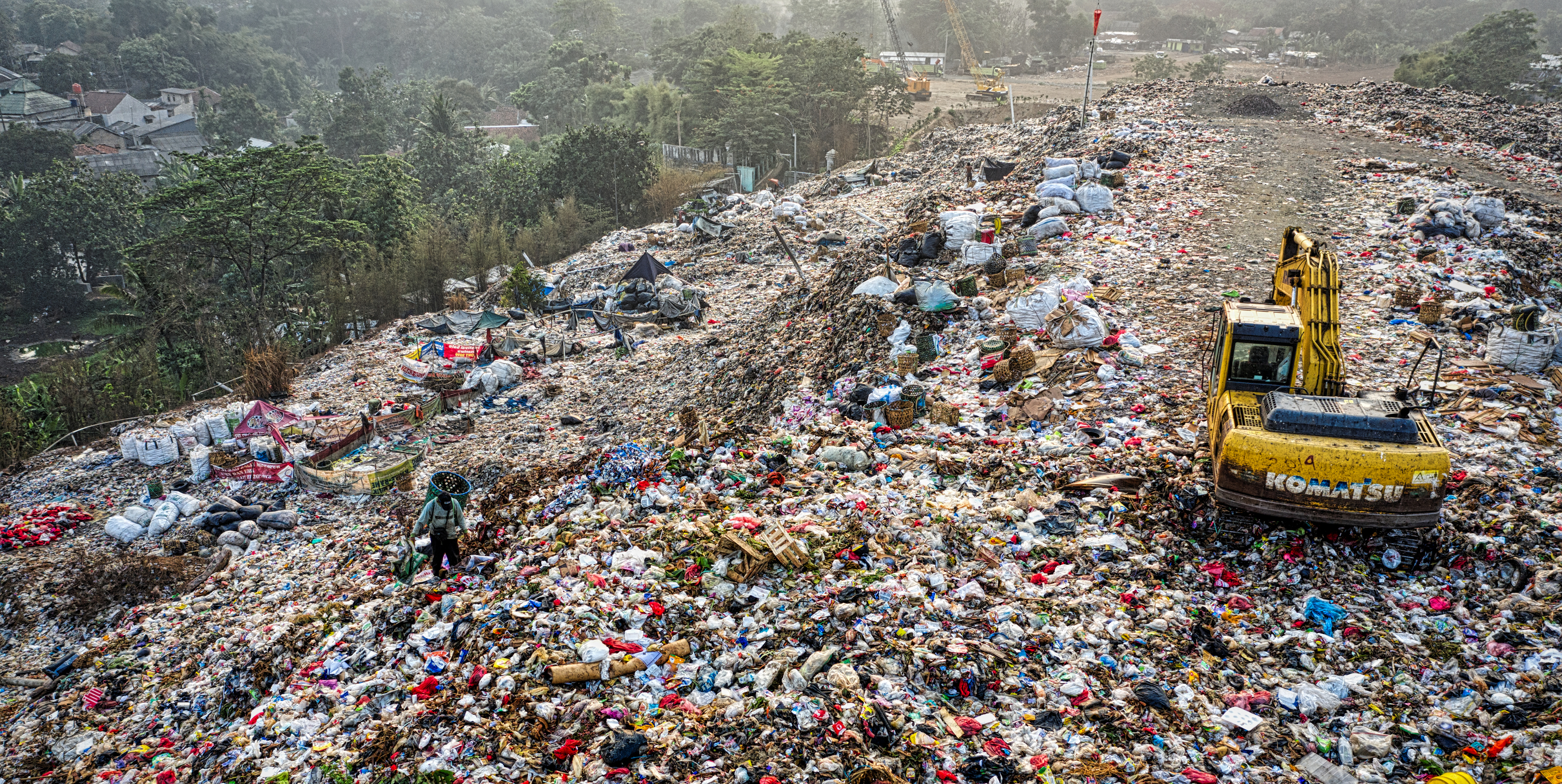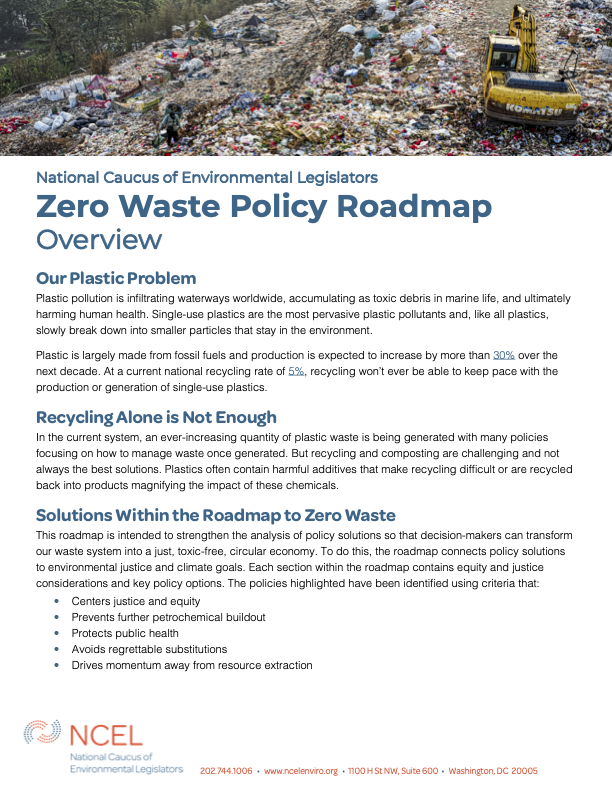
Report Overview
Zero Waste Policy Roadmap Overview
Overview
Plastic pollution is infiltrating waterways worldwide, accumulating as toxic debris in marine life, and ultimately harming human health. Single-use plastics are the most pervasive plastic pollutants and, like all plastics, slowly break down into smaller particles that stay in the environment. Plastic is largely made from fossil fuels and production is expected to increase by more than 30% over the next decade. At a current national recycling rate of 5%, recycling won’t ever be able to keep pace with the production or generation of single-use plastics.

Recycling Alone is Not Enough
In the current system, an ever-increasing quantity of plastic waste is being generated with many policies focusing on how to manage waste once generated. But recycling and composting are challenging and not always the best solutions. Plastics often contain harmful additives that make recycling difficult or are recycled back into products magnifying the impact of these chemicals.
Solutions within the Roadmap to Zero Waste
This roadmap is intended to strengthen the analysis of policy solutions so that decision-makers can transform our waste system into a just, toxic-free, circular economy. To do this, the roadmap connects policy solutions to environmental justice and climate goals. Each section within the roadmap contains equity and justice considerations and key policy options. The policies highlighted have been identified using criteria that:
- Centers justice and equity
- Prevents further petrochemical buildout
- Protects public health
- Avoids regrettable substitutions
- Drives momentum away from resource extraction

Empower State Environmental Champions
Your donation funds the fight for equitable actions that protect the environment and our health.
Donate